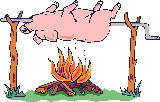Does it work or not? BP tries to make sense of puzzling readings from busted well
Published July 17, 2010
| Associated Press
AP
July 16: Workboats operate near BP's Transocean Development Drilling Rig II at the site of the Deepwater Horizon explosion in the Gulf of Mexico.
NEW ORLEANS
The waiting game continued Saturday morning as engineers kept vigil over the massive cap holding back oil from BP's busted Gulf well, their eyes glued to monitors in a faraway control room that displayed pressure readings, temperature gauges and underwater images.
Their round-the-clock work deciphering a puzzle of data from undersea robots and instruments at the wellhead is helping BP and the government determine whether the cap is holding tight as the end of a critical 48-hour testing window approaches. Signs so far have been promising but inconclusive.
Saturday afternoon will mark two full days since BP stopped the oil from leaking into the Gulf and entered into the pressure-testing phase. At that point engineers could offer more definitive evidence that the cap is working, or call for more testing. At any time before then, they could also reopen the cap and allow some oil to spill into the sea again. Scientists are watching for leaks either in the well itself or the sea floor.
Kent Wells, a BP PLC vice president, said on an evening conference call that engineers had found no indication that the well has started leaking underground.
"No news is good news, I guess that's how I'd say it," Wells said.
One mysterious development was that the pressure readings were not rising as high as expected, said
Coast Guard Adm. Thad Allen, the government's point man on the crisis.
Allen said two possible reasons were being debated by scientists: The reservoir that is the source of the oil could be running lower three months into the spill. Or there could be an undiscovered leak somewhere down in the well. Allen ordered further study but remained confident.
"This is generally good news," he said. But he cautioned, "We need to be careful not to do any harm or create a situation that cannot be reversed."
Inside BP's command center hundreds of miles away in Houston, engineers, scientists and technicians have been carefully monitoring reams of data around the clock, BP's chief operating officer, Doug Suttles, told The Associated Press Friday. Other engineers watched on monitors aboard ships at sea.
"You've got a very, very focused group of people because this is very important," Suttles said.
Asked if people are nervous, knowing the whole world is watching and government officials are sitting with them to monitor their work, Suttles replied: "I wouldn't say they are nervous. I would use the word focused."
Throughout the day, no one was declaring victory — or failure. President Barack Obama cautioned the public "not to get too far ahead of ourselves," warning of the danger of new leaks "that could be even more catastrophic."
Even if the cap passes the test, more uncertainties lie ahead: Where will the oil already spilled go? How long will it take to clean up the coast? What will happen to the region's fishermen? And will life on the Gulf Coast ever be the same again?
On Thursday, BP closed the vents on the new, tight-fitting cap and finally stopped crude from spewing into the Gulf of Mexico for the first time since the April 20 oil-rig explosion that killed 11 workers and unleashed the spill 5,000 feet down.
With the cap working like a giant cork to keep the oil inside the well, scientists kept in case the buildup of pressure underground caused new leaks in the well pipe and in the surrounding bedrock that could make the disaster even worse.
Pressure readings after 24 hours were about 6,700 pounds per square inch and rising slowly, Allen said, below the 7,500 psi that would clearly show the well was not leaking. He said pressure continued to rise between 2 and 10 psi per hour. A low pressure reading, or a falling one, could mean the oil is escaping.
But Allen said a seismic probe of the surrounding sea floor found no sign of a leak in the ground.
Benton F. Baugh, president of Radoil Inc. in Houston and a National Academy of Engineering member who specializes in underwater oil, warned that the pressure readings could mean that an underground blowout could occur. He said the oil coming up the well may be leaking out underground and entering a geological pocket that might not be able to hold it.
But Roger N. Anderson, a professor of marine geology and geophysics at Columbia University, said the oil pressure might be rising slowly not because of a leak, but because of some kind of blockage in the well.
"If it's rising slowly, that means the pipe's integrity's still there. It's just getting around obstacles," he said. He added that "any increase in pressure is good, not bad." [more]
http://www.foxnews.com/us/2010/07/16/gulf-geyser-control-coastal-residents-watch-wait-holds/
 Crude futures fall 1% as consumer sentiment drops
Crude futures fall 1% as consumer sentiment drops
 By Claudia Assis, MarketWatch & Kate Gibson, MarketWatchhttp://markets.usatoday.com/custom/...S&guid={8AC36A45-7D9A-4AE3-B6EF-C275ADBBEB3E}
By Claudia Assis, MarketWatch & Kate Gibson, MarketWatchhttp://markets.usatoday.com/custom/...S&guid={8AC36A45-7D9A-4AE3-B6EF-C275ADBBEB3E}



